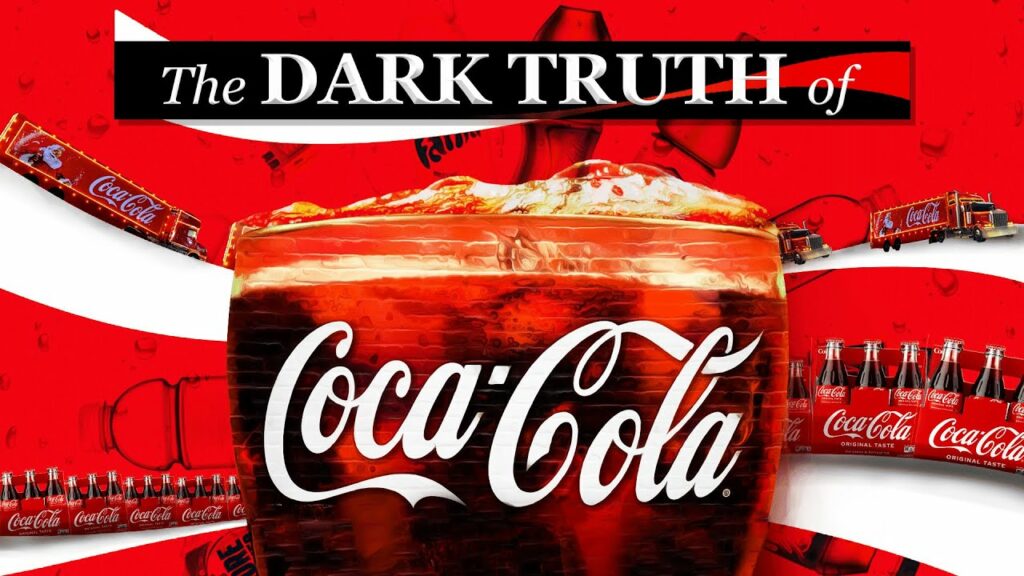The Disturbing History of Coca Cola

This video covers the INSANE History of Coca Cola . This MagnatesMedia mini-movie documents the history of Coca-Cola, along with some of Coke’s biggest scandals, controversies, and marketing successes.
The History of Coca Cola documentary commences by exploring the early origins of Coca-Cola as a patent medicine in the 1800s, developed by John Pemberton. Subsequently, we delve into Coca-Cola’s marketing strategy and its pioneering of numerous marketing techniques that are now commonplace. We then delve into how Coca-Cola capitalized on wartime circumstances and rapidly expanded globally (while also introducing Fanta). Following that, we examine some of the major allegations against Coca-Cola, such as those made by the stop killer coke campaign involving union leaders at Coke bottling plants. Additionally, we analyze Coca-Cola’s approach to addressing the adverse health effects of its beverages, including the ill-fated introduction of Dasani in the UK. Lastly, we explore the ongoing rivalry between Coke and Pepsi and how it unfolds.
⌛ Coca Cola Chapters:
00:00 Prologue
00:44 Chapter 1: How Coca-Cola REALLY Began
04:51 Chapter 2: The Spectacular Rise of Coca-Cola
10:11 Chapter 3: The Lucrative Business of War
14:40 Lingoda Special Deal
15:46 Chapter 4: Coca-Cola’s Secrets
25:52 Chapter 5: New Coke – The Greatest Disaster
History of Coca Cola – The Biggest Myths Debunked About Coca Cola

Image Source: Pexels
Food for thought. To up your energy levels, many of us turn to breakfast staples like cereals, pancakes, waffles, smoothies and more. But what about those other sugary sources? From sodas to candy and snack foods, sugar can be lurking in a lot of places—including your favorite. The good news is that many of these sweet substances have their benefits. If you’re looking to lose weight or keep it off while eating healthy, however, it’s important to know the hidden dangers lurking within your favorite junk foods. With that in mind, here are 10 common assumptions about Coca-Cola that you might not be aware of.
Coca-Cola is bad for your teeth
According to the Coca-Cola Company’s website, their product is acknowledged as detrimental to dental health. However, the validity of this assertion varies depending on who you consult. Dr. Jennifer Shukla, a dentist from New York City, advises against soda consumption, asserting that it offers no dental advantages. In fact, individuals who frequently consume soda are prone to encountering dental issues such as cavities, gum disease, and tooth loss. Although there is no scientific evidence supporting the benefits of drinking soda, there is also no study demonstrating the negative consequences associated with a soda habit.
Coca-Cola is bad for you overall
Coca-Cola is widely recognized as one of the most popular energy drinks worldwide. It can serve as a mixer for other drinks or be diluted with water to create a refreshing beverage. However, the question remains: is Coca-Cola detrimental to your health? The answer is subjective. Coca-Cola itself does not contain sugar, calories, or additives; rather, it is derived from sugar cane. Although this sweetener is not particularly healthy, it remains relatively low in calories and sugar content. Additionally, Coca-Cola contains a small amount of caffeine, which can have positive effects when consumed in moderation. Nevertheless, excessive caffeine consumption has been linked to various adverse health consequences such as heart palpitations, irregular heartbeats, high blood pressure, and anxiety according to certain studies.
Coca-Cola is bad for your bones
Despite not being labeled as a bone health beverage, Coca-Cola is often associated with concerns about its negative impact on bone health. In fact, a study conducted in 2011 revealed that consuming six or more soft drinks per week can heighten the risk of broken bones for both men and women. However, it is worth noting that not all soda is the same. Certain sugar-free sodas have lower calorie and sugar content compared to regular soda. Nevertheless, research indicates that consuming six or more sugar-sweetened soft drinks per week increases the risk of broken bones for both genders. Once again, it is important to remember that not all soda varieties are identical, with some sugar-free options having lower calorie and sugar levels than regular soda.
Coke has 0% lactose in it
In conclusion, there is a common misconception that Coca-Cola is free of lactose, the sugar present in milk. Although this statement is technically accurate, lactose is frequently reintroduced into the beverage during its production process. While it may not be considered a deliberate deception, it is irrelevant. When consuming Coca-Cola, one is essentially consuming a mixture of sugar and water. It should be noted that numerous other carbonated beverages also contain lactose, making this information less noteworthy.
Soda taxes are ineffective – History of Coca Cola
There is a common belief among many individuals that soda taxes do not yield the desired results. Their argument revolves around the idea that people would not opt for more Coca-Cola if its price increases. Although this statement holds some truth, it is primarily aimed at juice taxes. The reason behind considering juice taxes ineffective is the perception that these taxes solely focus on beverages with healthy components. However, the reality is that a significant portion of juice available in the United States contains certain levels of sugar.
Soda companies don’t care about obesity
This myth is connected to the preceding one. It is widely believed that soda companies have no concern for obesity. The reasoning behind this belief is that if soda companies do not care about their own health, why would they care about the health of their consumers? However, in truth, soda companies do care about the well-being of their consumers. Obesity not only poses a significant health risk but also has a substantial impact on finances. It is one of the primary contributors to healthcare expenses and reduced productivity.
Conclusion
Coca-Cola is a highly popular drink worldwide, enjoyed by billions of people daily. It’s important to note that even though Coca-Cola has minimal sugar content, it still contributes to sugar intake. If weight loss and better health are your goals, it’s advisable to avoid soda consumption. Fortunately, there are numerous tasty alternatives with fewer calories and less sugar available. If you desire an energy boost, coffee or tea could be a suitable choice. Both beverages contain caffeine, which provides energy and promotes wakefulness throughout the day. To discover more ways to stay energized, we recommend reading our article on top-notch diet resources.
#BusinessStories #Business #Entrepreneurship #Twitter
Follow us for New Content Daily
Web – www.epicheroes.com
Twitter @epicheroes
Insta @epicheroesuk
http://www.youtube.com/c/Epicheroes
https://amazon.co.uk/shop/epicheroes
 Epic Heroes Entertainment Movies Toys TV Video Games News Art Pop culture news goodness
Epic Heroes Entertainment Movies Toys TV Video Games News Art Pop culture news goodness


